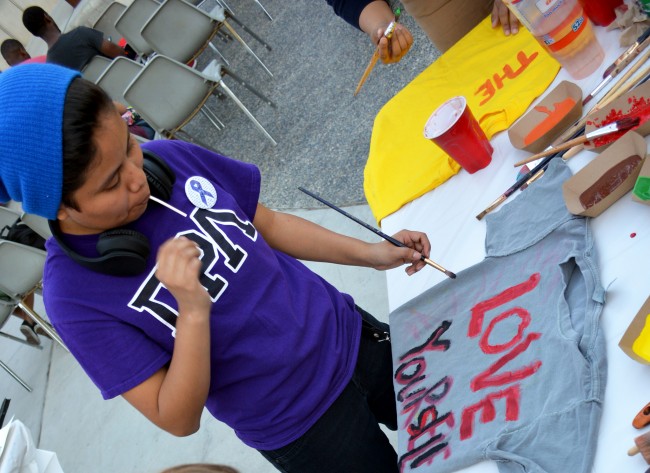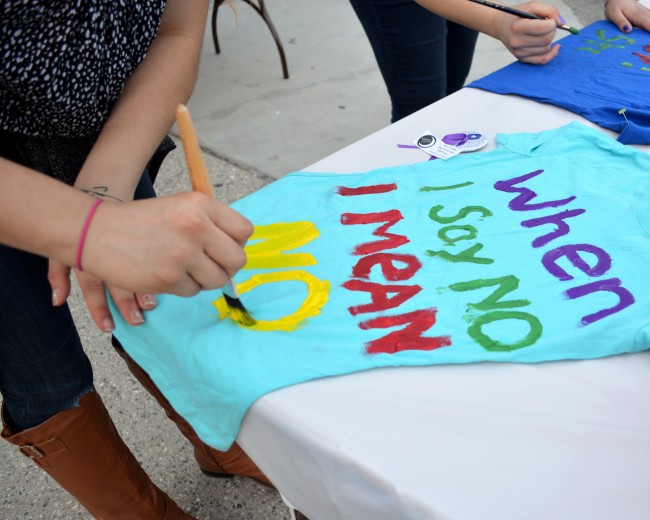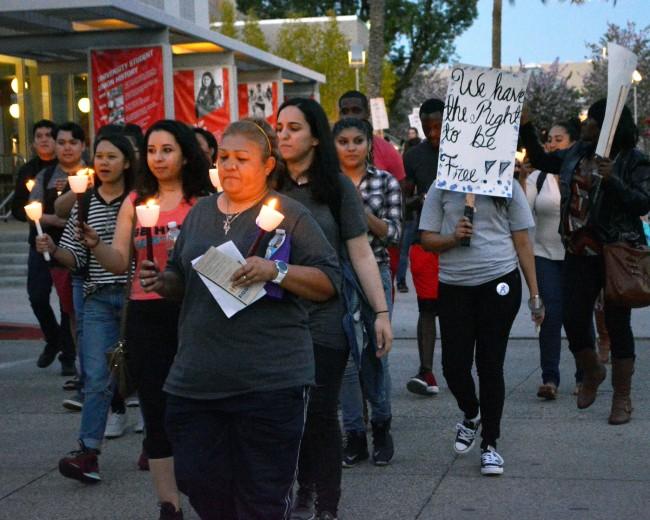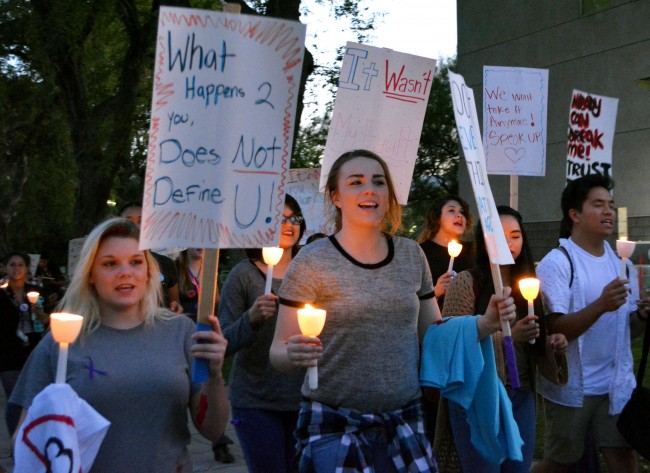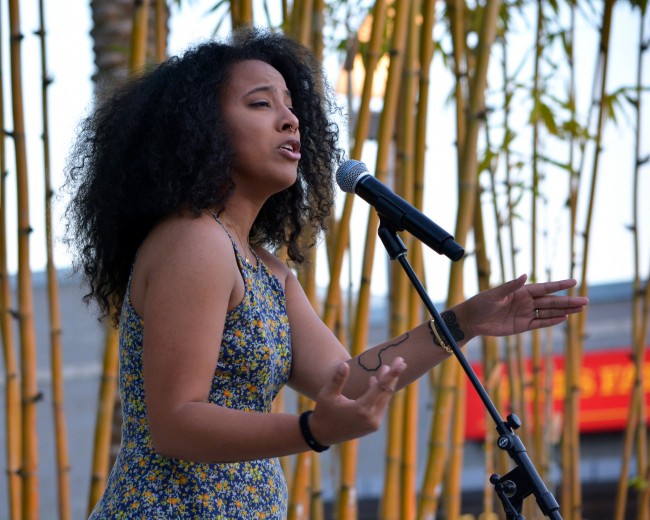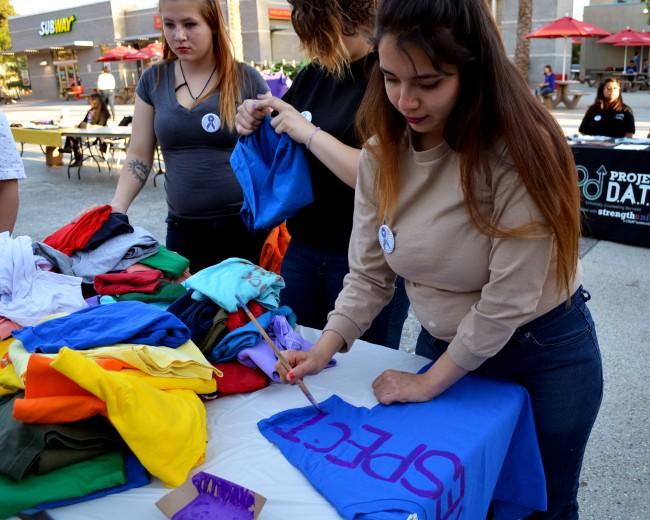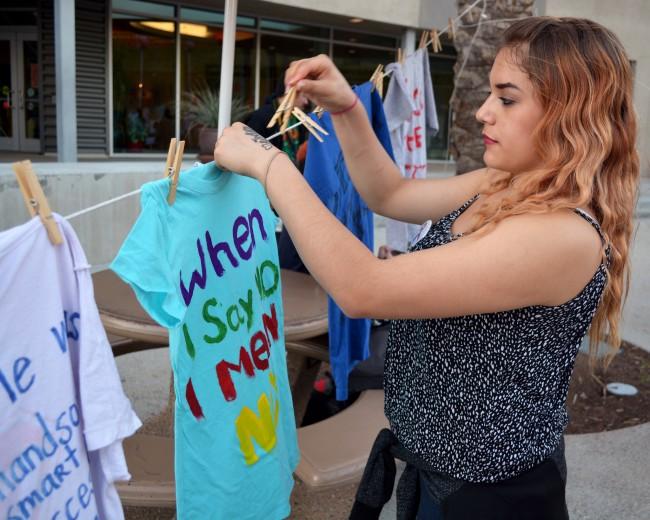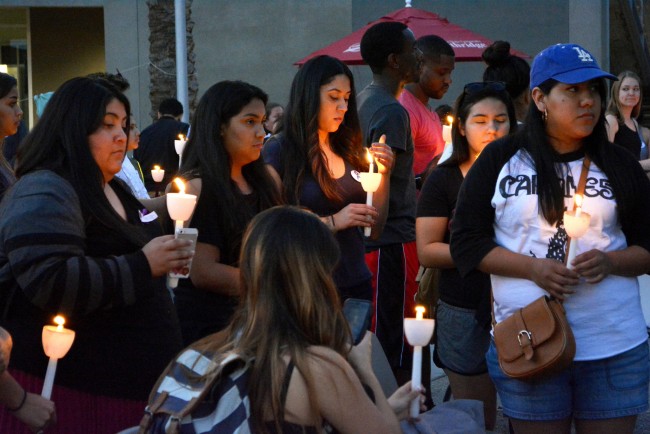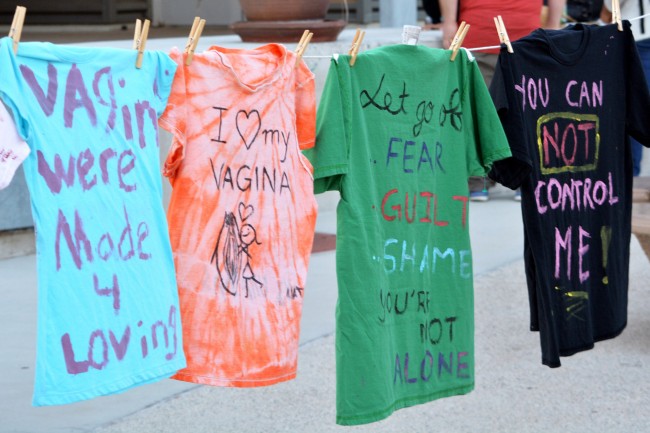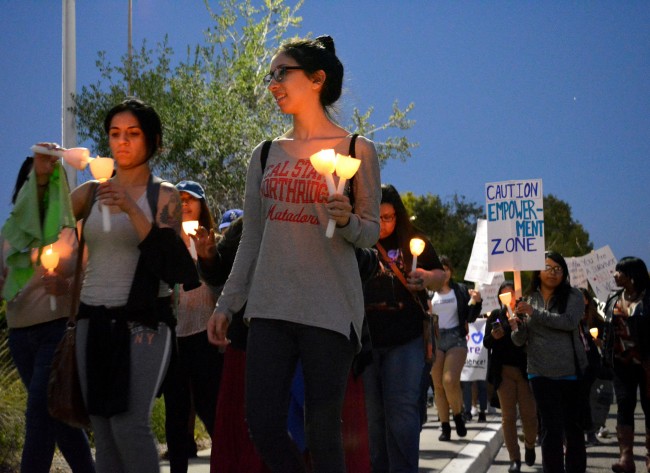One by one they went up. It happened to one girl at the age of 18, another at 16 and another at 10. One girl couldn’t hold the microphone to her mouth because her hands would not stop shaking. Another couldn’t face the crowd to tell her story, but eventually turned around when she felt comfortable enough.
A group of 78 people sat in front of them — listening, cheering and applauding them on as they got the courage to speak their stories.
These were survivors of physical, emotional and sexual abuse.
These testimonials were the culmination of the 13th annual “Take Back the Night” event, hosted Wednesday night by CSUN’s Women’s Research and Resource Center (WRRC).
A myriad of students, faculty and friends gathered at Plaza del Sol to paint shirts as part of the Clothesline Project, which aims to have people “air out their dirty laundry,” by putting how they feel towards abuse on a shirt and hanging it on a clothesline, according to WRRC Director Shira Brown.
Attendees also created picket signs, and heard musical and spoken word performances by singer Tiwaeis and a poet known as King.
Soon after, candles were passed to attendees and everyone started to march towards the WRRC.
“Women unite! Take back the night!” chanted volunteers. Demonstrators soon followed suit, repeating the phrase.
Susan Hua, CSUN’s Title IX coordinator, walked toward the back of the line holding a lit candle.
“This is not just a woman’s issue. It’s a community issue,” Hua said. “As a campus, we should all be involved in understanding our climate, improving it, and making it safer and respectful.”
The event comes days after a rape that happened about six months ago was reported to the CSUN Police Department — a fact that doesn’t surprise Hua.
“That’s part of the problem,” Hua said. “We want people to feel more empowered to report and to come forward and get assistance and know that the university has resources to help them.”
As everyone marched closer and closer to the WRRC, students passing by the demonstrators joined in and started chanting and marching along.
Student Mina Delavar said she initially attended the event because her friend wanted to receive extra credit for a class, but was ultimately glad she attended because it felt empowering.
“It’s a good time to make a stand for ourselves and make a point for ourselves,” Delavar said as demonstrators chanted “Two, four, six, eight, no more date rape.” “These chants that we are saying are progressive, because we have a voice and we shouldn’t be shut down.”
As people took their seats in front of the WRRC, the director of the center opened the stage for attendees to share their stories.
For student Ana Davila, the opportunity to hear other people’s stories brought back memories that she felt the need to share.
“The environment was really welcoming,” Davila said. “Everyone’s story makes you feel like you’re not completely alone. It encourages you to express yourself and tell your story.”
The event, which took three months to prepare, gave survivors of abuse a chance to open up, share their stories and be able to put a name on what happened, according to Brown.
“Part of the process of being a victim of violence is that there is a lot of shame and not naming it. You hear people get up and say ‘he did that to me,’ or ‘this happened to me,’ but not putting a word on it — say rape. It’s called rape,” said Brown, who has been doing the event for six or seven years. “When you name it, you take control of it and give meaning to what happened. Naming is a really important part of empowering yourself.”
It’s that empowerment that enables people to get up and share their stories, and people usually want to talk about their stories during the last 10 minutes of the event, because everyone gets comfortable talking and sharing, Brown said.
